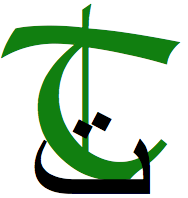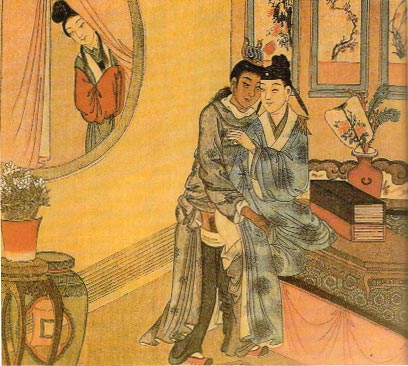Conversation: Queerness and the Postcolony
This is the first essay in this conversation. TQ Salon is a series of conversations among activists and scholars of South Asia.
* * *
Translation occupies an in-between zone. When words cannot be directly re-interpreted into another language, they are substituted with the best fit – a compromise. When we cannot find a substitute two languages merge into one, and a new word is created. Pakistan has existed in a space of translation since its inception, navigating the worlds of Islam, South Asian-ness and colonial ideals that remain difficult to shrug off. In recent weeks this conflict has made itself visible in the debate on trans and queer rights following the murder of Alesha, a trans activist who was shot and was left to bleed to death at Lady Reading Hospital in Peshawar. Her injured body – neither man nor woman, and thus unable to fit within a gendered hospital built during the colonial era– turned into a major debate. She was taken from male ward to female ward and rejected from both; she died in a makeshift zone in front of the hospital’s toilets.
This incident, like many in Pakistan’s history, has lifted the curtain from a society filled with problematic notions of right and wrong and conflicted between identities. More importantly, however, it has opened long overdue floodgates. Our newspaper and social media feeds have been inundated with articles written by Pakistanis about homosexuality and trans-sexuality with words such as queer, binary, non-binary, LGBT and patriarchy explained in textbook clarity. Theories and concepts that have been discussed in progressive sections of the Euro-American academic tradition are being translated by those of us privileged enough to have received such an education. In an otherwise commendable article in Express Tribune Aisha Sarwari cited an obsession with binaries – man and woman, right and wrong, ugly and beautiful – as a reason for violence against trans people and those who do not occupy a purely heterosexual space. On this point I must disagree; even though the West exists in binaries, identity for us is a bit more complicated. Most urban Pakistani families exist in constant multiplicities, they speak three to four different languages and include diverse ehtnicities, religions and histories. Why then is the queer conversation so difficult to have? In many ways it is because we have not found the right language for it. We have the words hijra and khwaja sara, but they are so saturated with the weight of history that they can never adequately be translated into transgender. How can we find a Pakistani-ness in discussions on homosexuality and sexual identity that have been seen and explained through a Western lens for decades?
It is important that we ask ourselves if we can do without the Western academic rhetoric that for all its usefulness can never understand the true scope and complexity of our identities, our stories and our traumas. Is it possible in Pakistan to speak about the right to love and live as we choose without talking about our deplorable healthcare system that has led many to bleed to death in understaffed and underfunded hospitals? What about our corrupt police force that takes advantage of khwaja saras amongst many others, extorting, intimidating and murdering for personal gain? Our judiciary system must also be held accountable for favouring the powerful and punishing the oppressed. Women too have been oppressed in South Asia for centuries, disregarded, ignored and patronized at every step. If we cannot ground concerns of gender non-normativity to a wider system that keeps most of Pakistan’s citizens oppressed and downtrodden, then how can we expect to create a language that even attempts to express LGBT rights?
At the other end of the debate perhaps one could say that gender identity is so personal that the language to describe it can only ever be individualised, tailored to each and everyone’s needs. Kami Chaudhry, a long time trans-activist identifies not as khwaja sara like so many she surrounds herself with, but as a male to female transgender. The two are very different she says, “being a khwaja sara is being part of a culture” and like most cultures it comes with its own hierarchies and lifestyle, where as to be trans is more liberating. “Identity is a very personal thing and it is not the same for everyone. Pakistani law only recognizes the rights of khwaja saras and eunuchs,” in effect making these liminal identities palatable by either culturalising or pathologising them. As of 2009, Pakistani law guarantees that khwaja saras are protected from prejudice in the workplace and can legally choose their gender on their identity cards. Given the historical context, this measure is a huge stepping-stone from Section 377 of the Indian Penal Code, a British colonial law drafted in the 1860’s readily absorbed by all of post-colonial South Asia. Section 377 includes within it the criminalization of all forms of sexual deviance, more specifically “crimes against the order of nature;” the British were apparently very well aware of what nature did and did not like.
Homosexuality interestingly enough remains too taboo of a topic to talk about in Pakistan not only was it successfully shamed by the British – love amongst men was openly recognized in poetry and daily life in Muslim South Asia – but it was also made punishable by 100 lashes under military dictator Zia ul Haq. Love between women remains un-discussed. To many people in the Anglo-Saxon world, this contradiction between the legal standards for homosexuality and transexuality is difficult to understand. For South Asians, on the other hand, it makes sense that we should make legislation particularly pertaining to khwaja saras because we have the language for it. As of yet we have not found the language to resuscitate conversations that speak of same sex love. Additionally, MSMs – or men who have sex with men – remain for the most part undetected in male dominated Pakistan, where the boundaries between displays of male friendship and eroticism are blurred. Women remain, for the most part, hidden from view and their sexuality has been neglected by our patriarchal society at large.
South Asian identity is fraught with conflict and contradiction; what does it mean to be Pakistani, to have migrated from India or to have a provincial affiliation? We speak English and Urdu in school but another language when we come home. Are we Sunni, Shia, Ahmedi, Christian, Parsi or Hindu? And at the end of the day, where do our loyalties lie? In a country where the state gives you no protection, families – constituted by the traditional arrangement of a man and a woman, with their children – become the only reliable support structures. It would be a crime to talk about LGBT rights without considering these factors, without understanding that we come from non-binary traditions and that we have a complexity that Western academia can never successfully neutralize and put into a textbook. Alisha was one of 45 khwaja saras to have been killed in the last two years. As a nation we have a problem, there is no doubt. Let us now find the language in which to discuss and address it.
Zulfikar Ali Bhutto is a multimedia artist and writer who is based in Pakistan and the U.S. His work explores issues of state violence and how that violence resonates in our collective memory, how it forms and shapes communities and by extension how it affects the individual. He has worked with the transgender community providing platforms of dialogue through talks and panel discussions.



